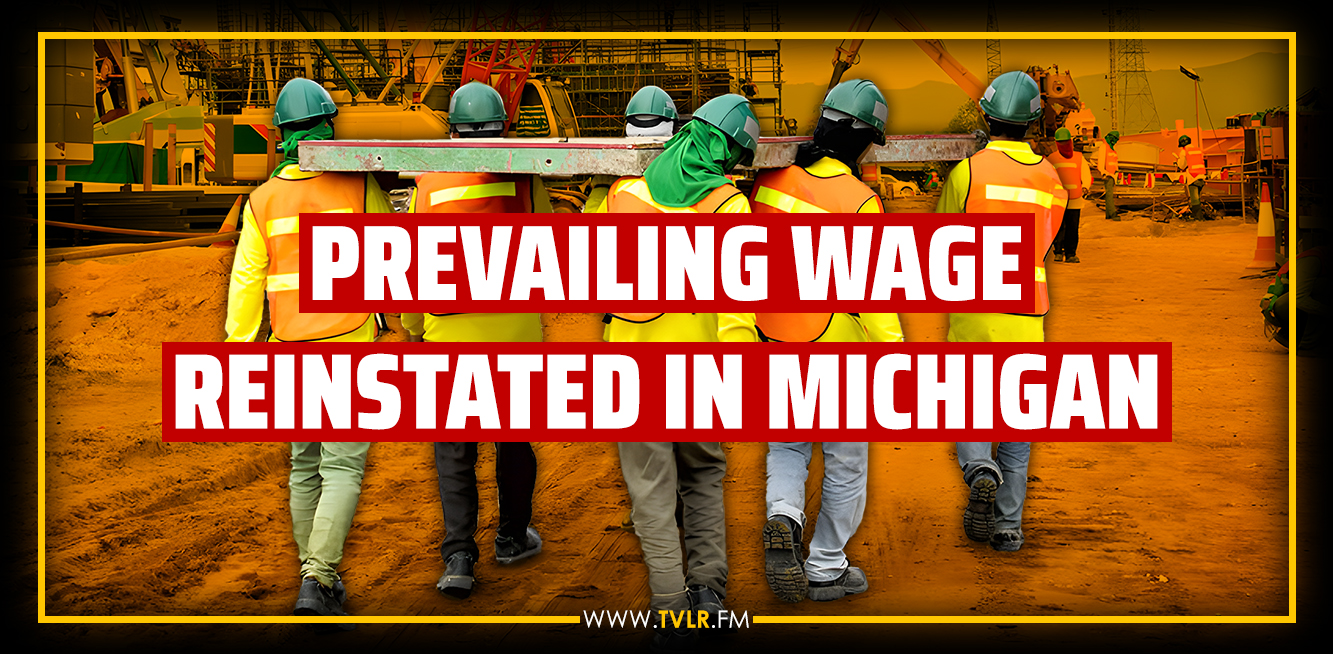ast month, we highlighted a conversation we had with Dr. Larissa Petrucci about a study she conducted with the Illinois Economic Policy Institute on the topic of “prevailing wage”; the research focused on the negative effects experienced by states who had dismantled their prevailing wage laws. Michigan was numbered among the states who had removed the system, but that has recently changed, as the prevailing wage law has been reinstated in the state.
Joey Andrews, a member of the Democrat Party and a state representative for Michigan District 38, joined The Valley Labor Report earlier this month to discuss the reinstitution of the state’s prevailing wage law.
“Interestingly, there was a state senator, a Republican from Indiana, that commented that the repeal of the prevailing wage law had, in practice, not done anything to improve costs of bids, and said — his words — that it was a mistake,” Andrews commented during the interview, noting that it was surprising to hear this from a Republican when they are generally against prevailing wage. But according to the data we have available to us (including the aforementioned ILEPI’s massive study), this is an accurate assessment.
“That’s generally what you see in the data everywhere,” Andrews elaborated. “Without prevailing wage, the job costs don’t go down, all that happens is workers get paid less, and the contractor gets paid more; they just shift around where the profit and the money lands in the bid. But when you bring on low-paid workers who aren’t professionals in their field, you end up with lower quality work which, over time, actually increases the amount of money that the state is spending on these projects.”
These negative effects align precisely with the data that was relayed to us by Dr. Petrucci. There is now sufficient research to show that, by and large, the prevailing wage system actually lowers the cost of projects, overall; it may seem like a high price tag up front, but the job is done, and done the right way, and done for good, no need for workers to return at a later date to repair anything that was damaged due to negligence or nonprofessional workmanship.
For a fuller picture of what this reinstitution of prevailing wage laws means for Michigan, watch the full discussion with State Representative Joey Andrews:
